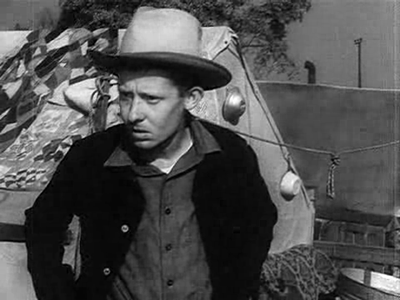Seventy-five years of Wrath
By MICHAEL CAINES
Five years ago, to mark the seventieth anniversary of The Grapes of Wrath, Robert DeMott wrote a piece for the BBC in praise of John Steinbeck’s “prophetic” novel; he saw it as a work that testified to the tragedy of the Great Depression and that spoke “just as directly to the harsh realities of our own time”:
“At this moment of global economic meltdown, when the whole world is gripped by severe financial recession (much of it caused by rapacious greed, fiscal malfeasance, and corporate arrogance), when groups around the globe are in migration from one kind of tyranny or another, when the gap between rich and poor seems insurmountable, and when homelessness and dispossession caused by widespread financial failure and mortgage foreclosure is rapidly rising in the US and elsewhere – symbolised by shantytowns and tent cities on the outskirts of major metropolitan areas – then it is fitting to think of The Grapes of Wrath as our contemporary narrative, our 21st Century jeremiad.”
Well, here we are, five years on, and apparently little has changed – the gap between rich and poor having in fact increased during the financial crisis – and the relevance of The Grapes of Wrath to the “harsh realities” of our own time has therefore failed to diminish. Hence the event I’m chairing tonight at the LSE, as part of this year’s Space for Thought Literary Festival: Where’s the Wrath Now? (It’s free, by the way, so if you’re in the vicinity, please take this as a last-minute exhortation to come and join us – us being Professors Stephen Fender and John Sutherland, the novelists Maggie Gee and Patrick Flanery, and me.)
It is striking to recall that when Steinbeck won his Nobel, in 1962, he was seen as being out of step, his concerns old-fashioned, and his literary techniques not progressive enough. “Does a Moral Vision of the Thirties Deserve a Nobel Prize?”, the New York Times asked at the time. Writing in the TLS more recently, a New Yorker, Michael Greenberg, took a historically revised view: “there are moments when The Grapes of Wrath reads like an early glimpse of what would become the phenomenon of economic globalization”, its images of “government-sponsored refugee camps and the miserable squatters’ settlements of California” being now “all too familiar”.
There are reasons besides “relevance” to pay homage to Steinbeck’s novel, of course; as well as being an extraordinary story, it has an extraordinary history of its own, as both a bestseller, apparently never out of print, but also an intermittently banned book (formerly banned in Steinbeck’s hometown, for one thing; Stalin banned the John Ford film version), and ritually burned in East St Louis, back in 1939. There is plenty enough for discussion in its supposed faults, too: Steinbeckian speechifying; the “garish” symbolic conclusion, as Morris Dickstein has called it; an impassioned but perhaps misleading progressivism.
I chaired a similar event at the LSE last year, and hope that this one will be just as lively and wide-ranging. Preparing for it has involved less (or rather, no) dipping into the Oxford Book of Parodies, although tributes and parodies could yet come up in conversation, I suppose . . .
Peter Stothard's Blog
- Peter Stothard's profile
- 30 followers




